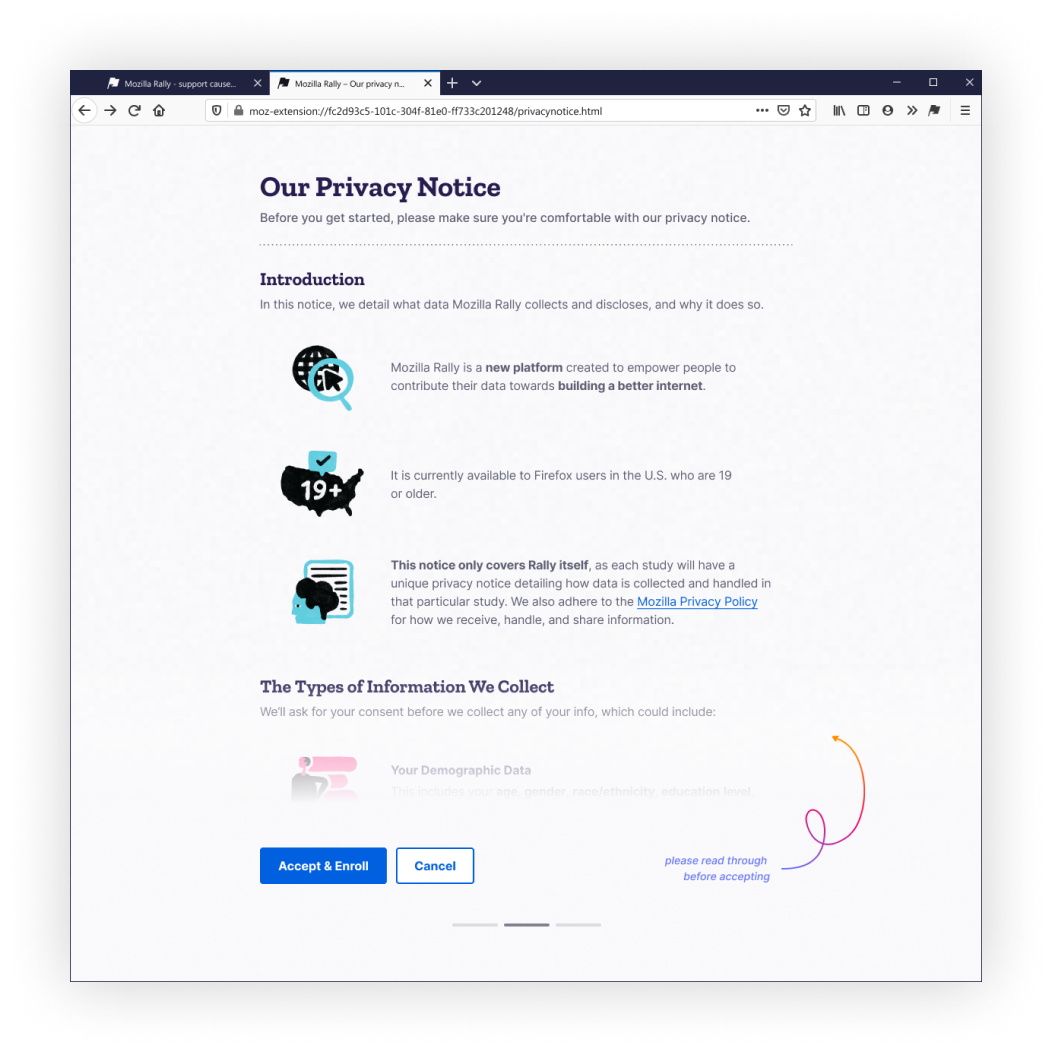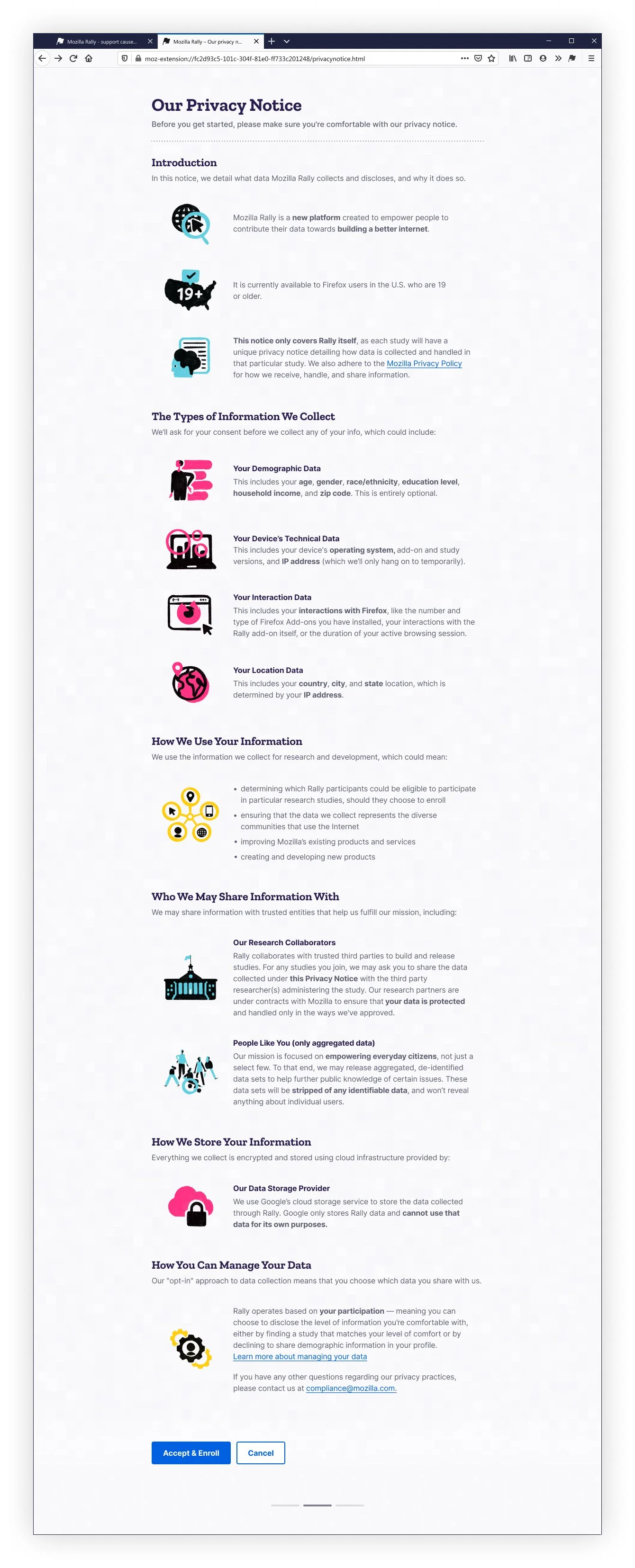To support the launch of their values-based data donation platform, Mozilla needed to create a constant and unwavering sense of trust in their users.
Mozilla Rally
Operating as an internal experiment at Mozilla, the Rally platform was launched as a browser extension that allowed users to opt-in to donate their data to academic researchers working on studies to promote a more equitable, friendly internet.
The premise was simple: rather than giving all of your data to Big Tech, you can share your data with researchers at trustworthy research institutions working on tracking radicalization and disinformation online, with the goal of helping the government better understand what a political solution to these issues looks like.
Introducing Mozilla Rally
After diagramming the basic user flow through the tool, it became clear that the current privacy policy was an impediment to delivering on Rally’s values. We wanted to ensure that users could follow the Consentful Tech Project’s model for good digital consent, meaning that whenever users agreed to data collection their consent was freely-given, reversible, informed, enthusiastic, and specific. You can learn more about this model at consentfultech.io.
To guarantee that users were informed and specific in their consent, we realized we would have to distill the privacy policy into something that could be easily understood and read in full. Most users skip privacy policies and terms of use, which ultimately means that they aren’t truly aware of what they’re agreeing to.
Designing for Consent in Onboarding
We collaborated with Mozilla developers and attorneys to build a full understanding of exactly how data was collected and stored so that we could better understand the requirements of the policy and design something more user-friendly. Working with the outline we had collected from our workshop, we developed a model that incorporated a clear visual hierarchy, iconography, and a reduced character count that slashed the overall amount of text while making the privacy policy visually engaging.
We also separated the platform Privacy Policy from individual Study “Consent Terms,” allowing us to be more specific and concise in each ask we make of a user. This specificity was key, allowing us to only ask for what we needed when we needed it, while respecting user agency by allowing them to pick and choose what they wanted to share.
At launch, our privacy policy was 60% shorter than the median privacy policy on the internet. Our point of contact at Mozilla used this work as a case study in an internal for how designers can use their skills to create opportunities for change and foster a more respectful internet. This work isn’t complete, but it’s a reminder of the responsibility we all have to ensure that we aren’t taking a user’s time or data for granted.








